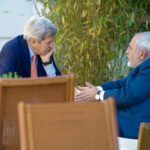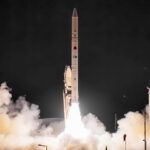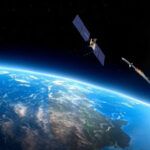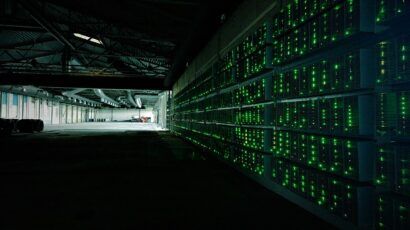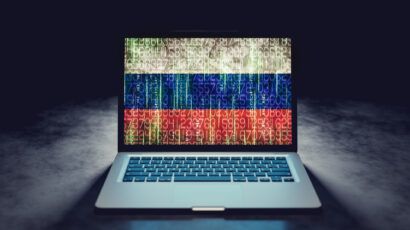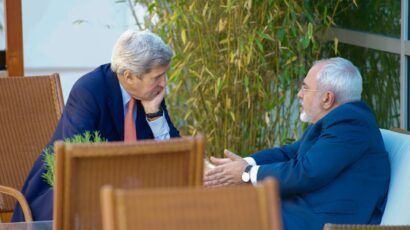The North Korean nuclear test: The Chinese reaction
By Hui Zhang | June 2, 2009
On the morning of May 25, many schools in northeast China were evacuated because of the earthquake caused by the North Korea nuclear test. The epicenter of the earthquake, registering 4.5 on the Richter scale, was just 180 kilometers away from those schools.
In Beijing, the Chinese government was shocked by the test. (Chinese officials reportedly were informed of it less than 30 minutes before the test took place.) Several hours afterward, the Chinese Foreign Ministry issued a strong rebuke, “On May 25, 2009, [North Korea] conducted another nuclear test in disregard for the common opposition of the international community. The Chinese government is firmly opposed to this act. . . . China strongly urges [North Korea] to honor its commitment to denuclearization, stop relevant moves that may further worsen the situation, and return to the Six-Party Talks.” Beijing issued a similar statement in response to Pyongyang’s first nuclear test in 2006 and strongly condemned it as “brazen.” But this time, Beijing is more upset because Pyongyang has blatantly disregarded China’s demand to denuclearize.
Moreover, because China is North Korea’s largest trading partner and provides Pyongyang with most of its fuel and food aid, Washington and Tokyo are pushing Beijing to put pressure on Pyongyang. But China’s leverage on North Korea is constrained by two main factors: (1) it believes the nuclear crisis is mainly the business of Washington and Pyongyang; and (2) it wants to avoid an abrupt collapse of the Kim Jong Il regime because such a collapse could create a massive flow of refugees into China and, in such an uncertain geopolitical realignment, possibly bring U.S. troops to China’s border. So despite the harsh early words, Beijing later softened its stance regarding the test, calling on “all parties concerned to respond in a cool-headed and appropriate manner and persist in seeking a peaceful solution through consultation and dialogue.”
All of this, of course, puts China in a tough diplomatic spot. For instance, while China supports U.N. discussions of sanctions on North Korea, it can’t allow the sanctions to cripple Pyongyang so badly that it would cause another provocative military act or the collapse of Kim Jong Il’s regime–for the reasons outline above. At the same time, Beijing, like Washington, Tokyo, and Seoul, wants a denuclearized and stable Korean Peninsula. Thus, it’s likely that Beijing will support modest U.N. sanctions against North Korea (e.g., the way it did after the first North Korean test), but that it will not support the tougher sanctions the United States, Japan, and South Korea would like to enact. And any hardening of China’s stance will exclusively be tied to facilitating negotiations about denuclearization, not regime change.
In terms of public reaction, according to recent Chinese surveys, more than two-thirds of respondents (i.e., everyday Chinese people) believe that Beijing should take stronger actions (including cutting economic aid and applying U.N. sanctions) to constrain Pyongyang’s nuclear ambitions. They consider North Korea a liability that, if unchecked, will create trouble for China’s economic and security interests. To guard against such an outcome, they suggest that Beijing make its political and financial support conditional on Pyongyang’s cooperation on denuclearization. Beyond concerns about a nuclear North Korea’s impact on the stability of China’s security environment, they also worry that a nuclear North Korea would pose a huge environmental threat to China’s northeastern provinces, believing that an accident from a nuclear test would result in heavy radioactive contamination in the region.
On the other hand, a minority of the Chinese public doesn’t support Beijing applying sanctions to Pyongyang because of the traditional friendship between China and North Korea. Some people in China also suspect Washington’s long-term strategic intentions in the region. For example, they’re concerned that, freed from the North Korean nuclear crisis, Washington will focus its efforts on containing China instead.
The reaction from Chinese experts differs somewhat from that of the public. On May 26, the Global Times, an English-language website run by the Communist Party’s People’s Daily newspaper, published a survey of 20 of the country’s top foreign-policy experts. They were evenly divided between those who support tougher sanctions and those who do not. And while two-thirds of the Chinese people think the nuclear test will strain Chinese-North Korean relations, many Chinese analysts (including myself) don’t think Beijing’s position toward Pyongyang will change significantly in the near future. Simply put, Beijing is unwilling to take sides between Pyongyang and Washington. Plus, China may wish to retain its close ties with North Korea to gain more leverage over it.
In China, there are three major assumptions about Pyongyang’s motivations. Many believe that North Korea is enhancing its nuclear deterrence as a bargaining chip in future negotiations over denuclearization. Once Pyongyang gets what it wants most–a normalized relationship with Washington without the threat of regime change–it probably will abandon its nuclear program. Another popular view is that Pyongyang wants to join the nuclear club so it can push the international community to accept its status as a nuclear weapon state. Others believe that the test was designed to solidify Kim’s regime domestically before a transition.
Regardless of North Korea’s intentions, Beijing must deliver a clear message to Pyongyang–namely that its isolation from the international community will not end until it has relinquished its nuclear program. Hopefully, China’s affirmation of “no support for a nuclear North Korea” will make Pyongyang think twice before it undertakes another nuclear test or continues on with its nuclear program. Concurrently, Washington must make a serious offer to the North Koreans that includes robust security guarantees, normalization of relations, and economic aid. Then Beijing can maximize its leverage and press Pyongyang to accept such an offer. This is the most feasible way of denuclearizing the Korean Peninsula.
Together, we make the world safer.
The Bulletin elevates expert voices above the noise. But as an independent nonprofit organization, our operations depend on the support of readers like you. Help us continue to deliver quality journalism that holds leaders accountable. Your support of our work at any level is important. In return, we promise our coverage will be understandable, influential, vigilant, solution-oriented, and fair-minded. Together we can make a difference.
Topics: Nuclear Weapons, Opinion


